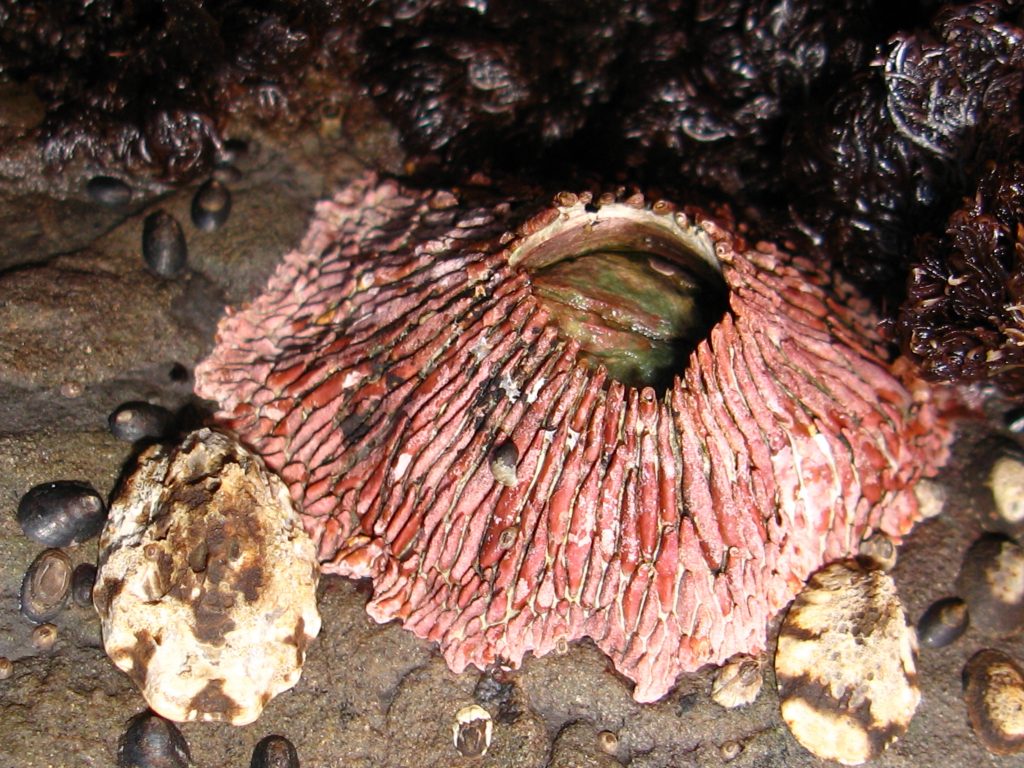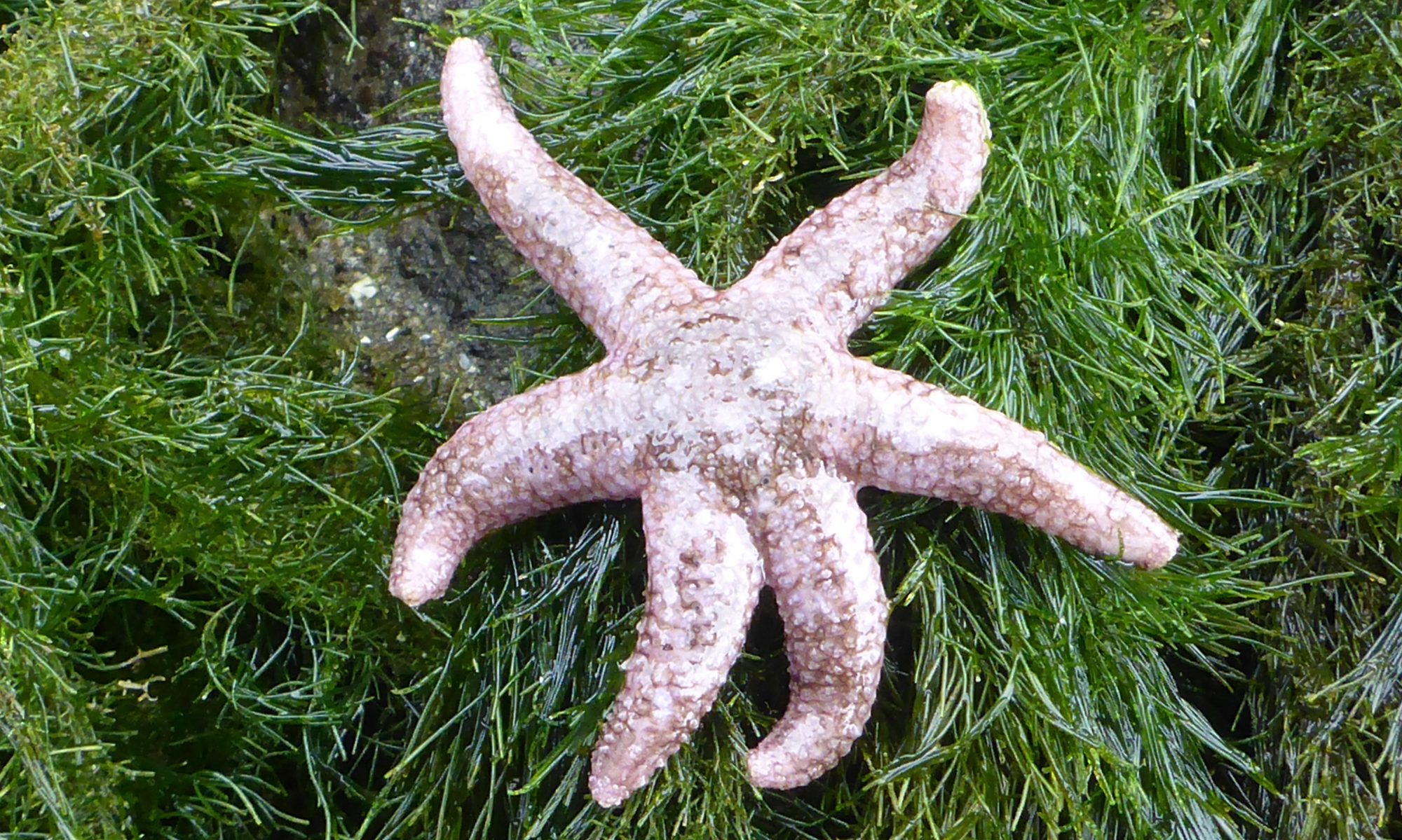
Volcano barnacles (Tetraclita rubescens)
are common mid- and high-intertidal barnacles found from Baja California, Mexico to central California, USA. In Southern California these barnacles are preyed upon by the southern dogwhelk (Nucella emarginata), which is able to drill through the thick shell of the barnacle (unlike the northern dogwhelks Nucella ostrina and Nucella canaliculata). The thicker shell of the volcano barnacle thus gives them additional predation and physiological protection, compared to that of ecologically similar barnacles from Northern California (Semibalanus cariosus).
Climate change has driven a northward expansion of the volcano barnacle north of San Francisco Bay since 1970 (recently magnified by heatwaves). Genomic analysis of the volcano barnacle will help us better understand the ecological genomics and evolution of a range expansion of an intertidal barnacle into a region with novel community-level interactions.
